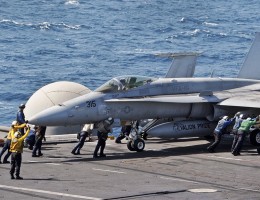Covered bonds stable as airstrikes ‘panic’ recedes
The yield on the 10 year Bund reached an all-time low on Friday after the US announced a series of airstrikes against Islamist militants in Iraq, but government bonds have since retraced and syndicate bankers said that covered bond spreads remained stable amid the panic.
 Ten year Bund yields reached 1.03% on Friday as 10 year US Treasury yields reached 2.35%, their lowest since June 2013.
Ten year Bund yields reached 1.03% on Friday as 10 year US Treasury yields reached 2.35%, their lowest since June 2013.
Syndicate bankers said that limited supply of covered bonds and the need for investors to put their money somewhere had supported spreads.
A syndicate official said on Friday that spreads had continued to tighten throughout the summer break.
“Everything is tighter on secondaries,” he said. “I’m not sure why this is. There is not a huge demand for covered bonds, but the limited supply is driving spreads in.”
One syndicate banker described the dips in government bond yields as a “panic” initiated by an announcement from president Barack Obama that the US would be conducting airstrikes in northern Iraq against militants from Islamic State, the group formerly known as ISIS.
However, the impact on market sentiment was short-lived with US Treasury yields falling back to close at 2.42% on Friday, according to one syndicate banker, who added that they were today around the 2.48% mark, having been at 2.47% on Wednesday. He said that the German market had retraced and Bunds were this morning at 1.06%.
“Historically, Pfandbriefe have usually widened on the back of Bund lows,” he added. “But with so little supply, and a need among investors to put their money somewhere, covered bond spreads have remained stable.”
Another syndicate official said that despite the upturn this morning, investor sentiment was generally negative. He noted that market participants were not just having to consider airstrikes in Iraq, but also to take into account the Ukraine situation and related ongoing troubles between Russia and the EU, and last week’s announcement that Italy had gone into recession. He said this accumulation of events was providing investors with a lot to think about, and that had these events come individually he would have expected little market reaction.
“With Russia involved, the situation is much more volatile,” he said. “Market participants are having to assess situations involving parties of which they have little knowledge, and who appear to be a lot less predictable.”
According to the syndicate official, the market would benefit from new issuance, but he added that it was in a “chicken or egg” situation.
“New issuance would help the market through any volatility, but new issuance needs stability,” he said. “For stability, the market needs confidence, and confidence comes from issuers issuing.
“However, A-team investors from Europe are on holiday, so the market has no real need to rush or panic.”

